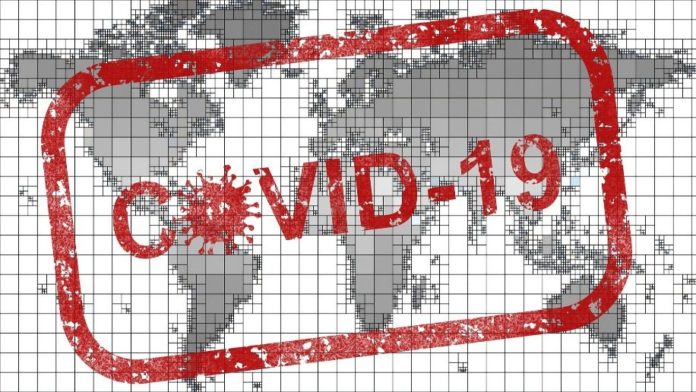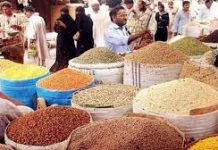World Desk
As cases of COVID-19 escalate in South Asia, one of the world’s poorest and most populous regions, Amnesty International calls on the authorities there to put human rights at the heart of their responses and intensify efforts to protect marginalized and vulnerable groups at higher risk, including daily wage earners, people displaced by conflict, health workers and prisoners.
The COVID-19 pandemic is poised to break into thousands of cases in South Asia as more governments across the region this week imposed strict lockdowns and curfews amid fears the virus will strike densely populated areas, overwhelming woefully inadequate healthcare facilities and devastating livelihoods across a region where more than 600 million people already live in poverty.
“As the number of COVID-19 cases in South Asia soars, the region’s leaders must pay special attention to the most vulnerable and marginalized in this crisis. They need to protect the workers for whom staying at home means losing their livelihoods, people who lost their homes in conflicts and now languish in overcrowded camps, prisoners squeezed into cells with several others, and, not least, the valiant doctors and nurses who have never had the resources they need and are now putting their own health at risk to save others,” said Biraj Patnaik, South Asia Director at Amnesty International.
The COVID-19 crisis in South Asia has been exacerbated by a failure of the authorities in South Asia to provide accessible, accurate and evidence-based information about the virus, how people can protect themselves, and what the government is doing to help them.
Some senior government officials in different countries in the region have, in recent weeks, either played down the crisis, suppressed information about its true scale, or, in the most damaging cases, provided false information about the effect it has – undermining the effectiveness of any public health response and potentially their right to health.
People living in rural areas, where literacy rates are low and access to health care severely limited, are particularly affected by a lack of reliable information about COVID-19.
In Afghanistan, information has been slow to reach areas that are remote or affected by the ongoing conflict. There is generally poor access to health care across the country, with low levels of testing taking place, but women and girls in remote areas are at risk of being left behind from the response – particularly where harmful local traditions prohibit women’s access to health.
In Bangladesh’s Cox’s Bazar District, where the first case of COVID-19 was reported this week, the failure to provide Rohingya refugees with accurate information about the virus has stirred alarming rumours in the camps that anyone who contracts it will be put to death by the authorities. The camps have been subject to an ongoing telecommunications blackout.
“States have a responsibility to provide information about COVID-19 that is accurate and evidence-based, that reaches people in languages they understand through mediums they can easily access. At the same time, there must be a concerted effort to counter misinformation about the virus that could harm people and to protect marginalized communities from stigmatization,” said Biraj Patnaik.
Authorities across South Asia have a responsibility towards not just their own citizens, but all individuals within their jurisdictions – including refugees and asylum-seekers.
South Asia has one of the highest populations of refugees in the world, including three million registered and unregistered Afghan refugees in Pakistan and more than a million Rohingya refugees in Bangladesh.
In Afghanistan, the ongoing conflict has displaced more than two million people within the country and continues to receive thousands of people who have been forcibly returned from other countries, including neighbouring Iran.
Social distancing is not possible in the Rohingya camps in Bangladesh, where tents are tightly squeezed together across the Kutupalong settlement. Refugees have to walk through the camps to access basic services. There are limited medical facilities at the camps and no emergency services available nearby.
“At this time, we should have hand sanitizers, soaps and masks to stay healthy and clean. However, we have not seen distribution of such materials since the outbreak,” Yassin Abdumonab, a young Rohingya man in Cox’s Bazar, told Amnesty International.
In Afghanistan, internally displaced people (IDPs) are scattered in different camps, often in difficult-to-access areas, where they have lacked access to basic healthcare facilities for years, with only mobile clinics occasionally available and people being forced to make long journeys to search for food and water.
Women and girls in Afghanistan’s IDP camps have extremely limited access to health care facilities. In Bangladesh’s camps for Rohingya refugees, women have inadequate access to medicines.
“For people displaced by conflict, social distancing is not an option, health care is not easily available, and basic necessities are a daily struggle. States have an obligation to not just ensure they are included in the response to the COVID-19 crisis but to address their particular needs,” said Biraj Patnaik.
The vast majority of workers in South Asia earn their living in the informal economy, often depending on daily wages. According to the International Labour Organization, the informal sector “accounts for 80 per cent of total employment” in South Asia.
They include street vendors, sanitation workers, drivers, construction workers, cleaners, tea plantation workers, fisherfolk, porters, cooks, and domestic workers, many of whom are internal migrant workers and live far away from their families.
As lockdowns come into force, they will overwhelmingly be denied their means of earning a livelihood. In an economically low-income region with limited social security systems in place, they do not have an adequate – or, in many cases, any – social safety net to fall back on. In Sri Lanka last week, as a curfew was being imposed, queues formed outside pawn shops, highlighting the dire circumstances already hitting people.
Some countries in South Asia, including India, Sri Lanka and Pakistan, this week announced economic stimulus packages, but these have been chiefly targeted at industries. There is a need for specific measures aimed at people working in the informal sector in line with the right to social security so that they can realize their right to an adequate standard of living.
“No one should be forced to make the pernicious choice between starvation and infection. South Asia’s economies depend on the daily toil of workers who are forced to seek their living in insecure and often inadequate working conditions. States must protect their livelihoods as best as they can during this crisis. In the long term, international solidarity will be needed for a recovery. This is a global pandemic and it needs a global solution,” said Biraj Patnaik.
Every one of South Asia’s eight countries has one of the lowest numbers of physicians per capita, according to the World Bank. It ranges from 0.3 physicians per 1,000 people (Afghanistan) to just one physician per 1,000 people (Maldives, Pakistan and Sri Lanka). At the best of times, there are too few healthcare workers with too few resources.
Health workers in Afghanistan, Bangladesh, India, Nepal and Pakistan are already raising concerns about the lack of personal protective equipment available to them as they treat patients infected with COVID-19.
In Bangladesh, ten physicians are already exhibiting symptoms and have been isolated. In Pakistan, a doctor from Gilgit-Baltistan died last week. “It is like suicide to treat patients without protection,” Dr Asfandyar Khan, President of the Pakistan Institute of Medical Sciences told a news conference in Islamabad, warning that doctors could strike unless they were given the protective equipment they need.
The burden on health workers and other who workers who support health facilities – who are on the frontlines of the crisis, exposed to the greatest risk, endure long hours, psychological distress and fatigue – is set to rise along with the numbers of people infected by COVID-19. They also have to protect their families from exposure to the virus while helping patients recover from it.
“Frontline health workers are the heroes we depend on in this crisis. They are putting the health of others first at a risk to their own. The very least they can expect is to be given the protective equipment they need. States have an obligation to ensure they are protected – including by providing appropriate training and psychosocial support, for them and their families,” said Biraj Patnaik.
South Asia’s prisons are notoriously overcrowded. In Bangladesh, there are more than twice as many prisoners as there is capacity. More than 70 per cent of the country’s prison population is still awaiting trial. In Nepal, the occupancy rate is more than 150 per cent, with more than three times as many prisoners as there is capacity in some prisons.
Prisoners are also often subject to inhumane conditions, including poor ventilation and sanitation, that put their health at risk. Earlier this year, a Pakistani judicial inquiry commission highlighted the limited access to health care in prisons, reporting that 1,823 inmates are suffering from Hepatitis, 425 from HIV, and 173 from tuberculosis – all contracted in prison.
In Sri Lanka, two prisoners were killed, and others injured, by prison guards last week when protests related to COVID-19 flared at Anuradhapura prison. Pakistan this week reported its first positive case of COVID-19 in a prison at Camp Jail Lahore, where there are nearly three times as many prisoners as capacity – the majority of them still awaiting trial.
Under international human rights law and standards, the authorities must ensure prisoners have prompt access to medical care and enjoy the same standards that are available in the community, including when it comes to testing, prevention and treatment of people infected with COVID-19.
Some of South Asia’s countries have taken welcome steps towards the release of some prisoners, including India, Pakistan, Nepal, Sri Lanka and Bangladesh, but these are yet to be implemented or applied consistently.
“South Asia’s prisons are a blight on the region’s conscience. They are notoriously overcrowded, violent, unsanitary and lacking health care, which place inmates at high risk of infection. Efforts should be made to urgently reduce overcrowding, including by considering release for older detainees and those who may qualify for early parole and who no longer pose a threat to public safety. There should also be a presumption of release for people charged with a criminal offence who are awaiting trial. Those who will not be released must be given the same standards of medical care available to everyone else in the country, including transfers to medical facilities if they require specialised care,” said Biraj Patnaik.
(This story is based on a news release of Amnesty International)















